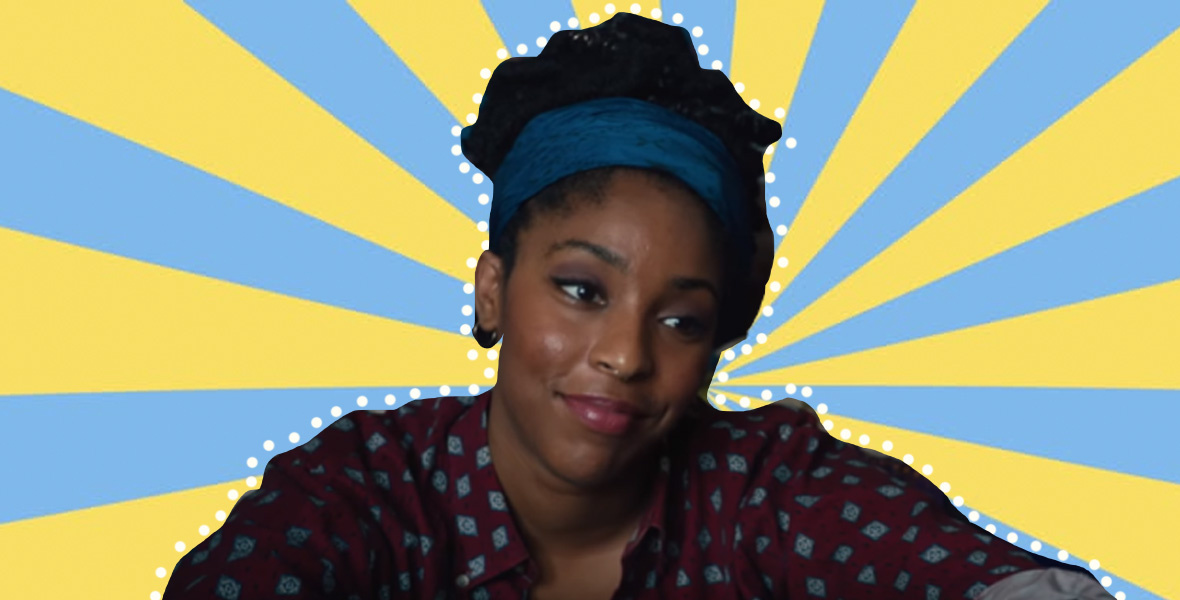Naomi Adedokun reflects on what it means for young black female characters to be represented on their own terms and the future of romcoms.
The opening scene of ‘The Incredible Jessica James’, framed as a disastrous first date, tells you all you need to know about the eponymous heroine and her film. Jessica is forthright and biting, her dialogue quick and witty. A few years ago, a lesser film would have cast her as the bitter ex or one-off bitch character. By 2017, it’s a testament to the evolution of the female protagonist, and, more significantly, the portrayal of black female characters.
Jessica embodies what I would call Fifth-Wave Feminism. A meme-driven, self-love encouraging movement, defined primarily by young women, that constantly teeters between being obnoxious and admirable. In ‘How to Be a Woman’, Caitlin Moran states that it’s distinguished by “women countering the awkwardness, disconnect, and bullshit of being a modern woman not by shouting at it, internalising it, or squabbling about it – but by simply pointing at it and going ‘HA!’ instead.”
And Jessica proceeds to do just that in this film.
Where previous female protagonists agonised, Jessica shrugs and points out the silliness of it all. She’s not sent into a spiral when lesbians hit on her in a club. She and her best friend discuss their collection of vibrators without shame. Her boyfriend of 2 years breaks up with her, but it’s not the end of her world or her love life. “I’m tall, I’m pretty, I’m smart, I am coco queen”, she states easily. It’s a simple affirmation, but an important one because it’s rare to find a black woman as the main character confident in her own worth. So often, the pain or comedy of black women is used for the entertainment or the furthering of other story lines. Characters that look like me or Jessica are always kept in the background, wilting in the shadow of their male counterparts or white best friends. It’s refreshing to watch the film breeze past these trope potholes where other narratives would have gotten stuck.

In fact, the smooth and spunky pacing never lets you get stuck. The music and editing style is bold and colourful. It goes without saying that Jessica Williams (the actress) is as excellent and empathetic as Jessica James. I was also enamoured by Chris O’Dowd as her bumbling love interest. Their sex scene is a particular highlight. It consisted of two people who liked each other having equally gratifying sex. It’s not hot and heavy. There’s no sultry music in the background, or dark lighting or choppy editing. I was surprised at how surprised I was to see it.
Halfway through, just as I begin to despair that the film is never going to be anything more than entertaining, we slow down as Jessica goes home to visit her family in Ohio. It’s the American Dream. Her younger sister is married with a child on the way. Everyone wears pastels and smiles all the time. Jessica, who had seemed larger than life, suddenly sticks out like a sore thumb. She shuffles into the squeaky clean house in her vibrant thrift-store jumpsuit, and for the first time, seems uncomfortable and out of place. Her inability to connect to this idealised life, and her guilt about it, is emblematic of wider feelings of Generation Y & Z.
I recognise myself in Jessica. She may look confident on the outside, but she’s brimming with insecurity over her identity and purpose. She loves theatre but is dismayed by rejection and worried that she’ll never make anything of herself. She compares herself to her family and finds herself lacking. TIJJ is not just a rom com or a “feminist masterpiece”, it’s a call out to young people that still feel inadequate even in spite of the memes saying we should love ourselves. After all, romcom’s need a saviour, and Jessica Williams could be it.
Collage by Emily Godbold
Advertisements Share this:![1511159129179[1]](/ai/025/280/25280.jpg)





